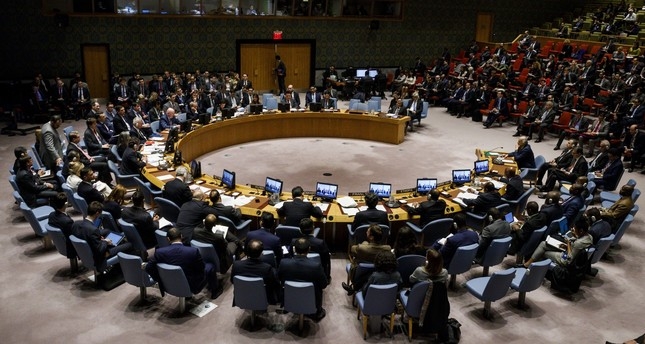


|
Trump was reacting to a warning from Assad's main ally Russia on
April 10 that any US missiles fired at Syria over the deadly assault on a
rebel enclave would be shot down and the launch sites targeted.
"Russia vows to shoot down any and all missiles fired at
Syria. Get ready Russia, because they will be coming, nice and new and
'smart!'," Trump wrote in a post on Twitter.
In response, Russia's Foreign Ministry said in a Facebook post
that "smart missiles should fly towards terrorists, not towards the
lawful government", referring to Syrian rebels and Assad respectively.
Foreign Ministry spokeswoman Maria Zakharova said any US missile
strike could be an attempt to destroy evidence of the reported chemical
weapons attack in the Syrian town of Douma, for which Damascus and Moscow
have denied any responsibility.
After the attack, the rebel group holed up in Douma - Jaish
al-Islam - finally agreed to withdraw from the town. That sealed a major
victory for Assad in Syria's civil war, crushing a protracted rebellion in
the eastern Ghouta region near Damascus.
Moscow's threat to down US missiles came from its ambassador to
Lebanon, Alexander Zasypkin, who said he was referring to a statement by
President Vladimir Putin and the Russian armed forces chief of staff.
Zasypkin also said that any hostilities with Washington should
be avoided and Moscow was ready for negotiations.
But his remarks could raise fears of direct conflict for the
first time between major powers backing opposing sides in Syria's protracted
civil war.
Oil prices hit their highest level in more than three years on
April 11 after Trump's threat to unleash missiles, and US stock index futures
fell sharply over rising concern about possible Russian-US conflict over
Syria.
The Kremlin said earlier on the same day it hoped all sides
involved in Syria would avoid doing anything to destabilise an already
fragile situation in the Middle East, and made clear it strongly opposed any
US strike on its ally.
Trump on April 10 cancelled a planned trip to Latin America
later this week to focus on responding to the Syria incident, the White House
said.
* Syria's foreign ministry accused the United States on April 11
of using "fabrications and lies" as an excuse to target its
territory, state media said.
"We are not surprised by such a thoughtless escalation by a
regime like the United States regime, which sponsored terrorism in Syria and
still does," state news agency SANA cited an official source in the
ministry as saying.
* US President Donald Trump on April 11 offered to help boost
Russia's economy and sought an end to what he called an "arms
race," in an apparent diplomatic overture less than one hour after
warning Moscow about pending missile strikes in Syria.
"Our relationship with Russia is worse now than it has ever
been, and that includes the Cold War. There is no reason for this. Russia
needs us to help with their economy, something that would be very easy to do,
and we need all nations to work together. Stop the arms race?" Trump
wrote on Twitter.
* Separately, some major airlines were re-routing flights on
April 11 after Europe's air traffic control agency warned aircraft flying in
the eastern Mediterranean to exercise caution due to possible air strikes
into Syria.
Eurocontrol said in a notification published on April 10
afternoon that air-to-ground and cruise missiles could be used over the
following 72 hours and there was a possibility of intermittent disruption to
radio navigation equipment.
|
Source: NDO